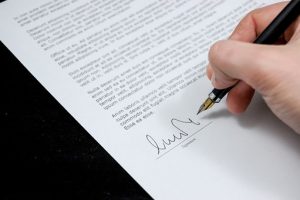Lost Profits as Commercial Damages and The New Business Rule
 In a business dispute, a prevailing party is awarding damages awarded damages it can prove, typically awarded lost profits. The “New Business Rule,” however, has traditionally including recovery of lost profits for “new” businesses, because their lack of a track record makes estimating lost profits too speculative. The is a longstanding rule in New Jersey commercial litigation. However, several newer cases indicate that it may be on the way out and indeed may already be dead, and in any event courts strain to avoid its application. This is logical, because another guiding principal of New Jersey business law is that equity requires that courts try to prevent a wrongdoer from profiting from its misdeeds at the expense of an innocent party. The new cases lead to the conclusion that that it is questionable whether the New Business Rule remains valid at all.
In a business dispute, a prevailing party is awarding damages awarded damages it can prove, typically awarded lost profits. The “New Business Rule,” however, has traditionally including recovery of lost profits for “new” businesses, because their lack of a track record makes estimating lost profits too speculative. The is a longstanding rule in New Jersey commercial litigation. However, several newer cases indicate that it may be on the way out and indeed may already be dead, and in any event courts strain to avoid its application. This is logical, because another guiding principal of New Jersey business law is that equity requires that courts try to prevent a wrongdoer from profiting from its misdeeds at the expense of an innocent party. The new cases lead to the conclusion that that it is questionable whether the New Business Rule remains valid at all.
Lost Profits as a Measure of Damages.
When one party to a contract breaches a contract the other party may recover compensatory damages, which are the natural, probable and foreseeable consequences of that breach. As New Jersey’s Supreme Court explained “[T]he goal is to put the injured party in as good a position as if performance had been rendered.” Lost profits are one of main elements which businesses can recover as compensatory damages in a breach of contract lawsuit.
The burden of proof is on the party making the allegations. This includes the burden of proving damages caused by the breach. Lost profits must be established with a “reasonable degree of certainty.” However, generally lost profits cannot be proved with mathematical precision. Jurors are therefore allowed to use “considerable speculation” to calculate lost profits, provided there is some basis for their speculation, and not just pure speculation.
The New Business Rule
The New Business Rule basically precludes “new businesses” from recovering lost profits because they are too speculative, because there is no track record to base the computation of lost profits on with any degree of reasonable certainty. However, the cases applying this are decades old, and the courts in newer cases have found reasons to find the rule inapplicable to the case at hand.
The Rule to New Businesses.
The clear recent trend is for courts to award lost profits even to new businesses when they could be proved with a reasonable degree of certainty. Granted, there have been recent cases which refused to award lost profits to “new” businesses. However, they did not apply the New Business Rule – the allowed the new businesses to attempt to prove lost profits but denied the award because the businesses could not do so with reasonable certainty. For example, in the case of Bell Atlantic Network Services, Inc., v. P.M. Video Corp., the Appellate Division of New Jersey’s Superior Court allowed a new business to attempt to prove it had lost profits. The Court denied the claim, not because of the New Business Rule, but because it believed the business had not proved its lost profits with any reasonable certainty.
The Rule’s Doubtful Continuing Validity
It is likely that the New Jersey Supreme Court will reject the New Business Rule. No court has followed it in recent years. The Court in the Bell Atlantic case questioned whether it was viable any longer. Indeed, the United States Court of Appeals for the Third Circuit, which hears federal appeals from New Jersey, has expressly rejected the New Business Rule.
There is good reason for this under longstanding law and equity. New Jersey’s courts have long upheld the principle that some degree of uncertainty always exists, and some degree of speculation can never be completely avoided even with the best evidence. Therefore, New Jersey courts reason, it is only fair to lay that uncertainty “at the door of the wrongdoer who altered the proper course of events, instead of at the door of the injured party.”
Contact Us
Our business attorneys help New Jersey businesses recover damages when their rights have been violated. Call us at (973) 890-0004 or email us to set up a consultation.
 New Jersey Lawyers Blog
New Jersey Lawyers Blog

